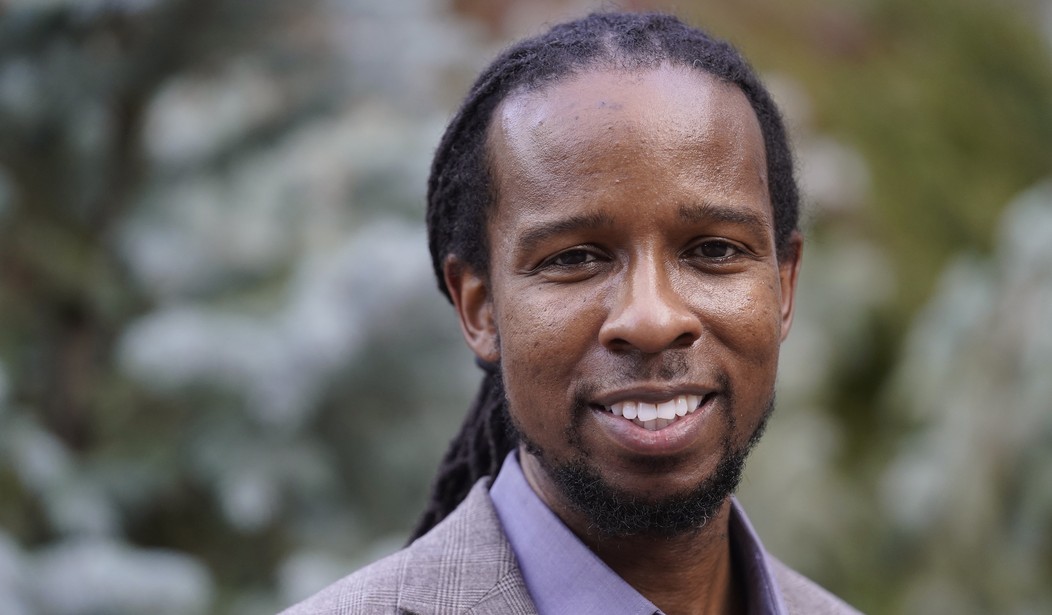When Ibram Kendi was hired by Boston University in the summer of 2020, he founded the Center for Antiracist Research at his new school. The timing coincided with the death of George Floyd and, like BLM, Kendi’s research center quickly attracted millions of dollars in donations.
Jack Dorsey, the CEO of Twitter and the Square cofounder, has donated $10 million to BU’s Center for Antiracist Research, which launched in July 2020. The gift was made through his charitable initiative, Start Small, and is unrestricted. That will allow founder and CAS History Professor Ibram X. Kendi and his team the flexibility to make the most of the money as they build out the Center.
And that was just the start:
The Rockefeller Foundation, a global science-driven philanthropy founded more than a century ago, is giving the BU center $1.5 million over two years…
The grant, and the Rockefeller Foundation’s role as a founding funder of the center, reflects the foundation’s commitment to expanding equity and economic opportunity for low-wage families and communities of color across the country, says Rolley.
Another non-profit called the Vertex Foundation also donated $1.5 million over 3 years. The center was flush with cash. To do what? The center has a website with a FAQ describing the kind of work done there:
The antiracist impact of the Center is constantly growing through its growing portfolio of initiatives. In the Center’s first year alone, the staff began an innovative partnership with The Atlantic’s COVID Tracking Project to build the first-of-its-kind COVID Racial Data Tracker to trace the impact of the virus by race. In March of 2021, we announced a partnership with the Boston Globe opinion: The Emancipator, a periodical that carries forward the legacy of nineteenth century antislavery newspapers in updated form for antiracism in the twenty-first century.
This year we began laying the foundation for the Antiracist Society which brings together individuals and organizations on a national level to fight racism just as the nineteenth century Antislavery Society did. We have begun developing a Racial Data Tracker (RDT) and Racial Policy Tracker (RPT). The Racial Data Tracker will track, visualize, and analyze racial inequities to highlight historical and current trends, while also training generations of racial data scientists. See the information under each of our Offices for more details about various projects and initiatives.
But even after all the hype and the donations it seems the center wasn’t working as planned. Last week there were reports that most of the staff had been laid off. The total staff had been around 45 people and now around 20-30 of them are gone.
In a statement, BU spokesman Colin Riley confirmed the layoffs. He said the center is “evolving to a fellowship model” and would offer details on “this new direction” soon.
Kendi will remain the research center’s director. Riley said BU and the center are “committed to working with and supporting affected employees as they look for their next opportunities.”
The Boston Globe reported some of the employees were not pleased and blamed Kendi for the center’s layoffs.
Current and former employees in the center who spoke with the Globe were critical of Kendi’s management and questioned how a department that has received millions of dollars in donations and grants since its launch could now be in a position where it is cutting staff.
The center is split into four offices that focus on narrative, advocacy, research, and policy. Spencer Piston, faculty lead of the center’s policy office and an associate professor in BU’s political science department, said the layoffs have affected people in each office.
“There are a number of ways it got to this point, it started very early on when the university decided to create a center that rested in the hands of one human being, an individual given millions of dollars and so much authority,” Piston said in an interview.
You can tell there’s a whole story behind that quote. Maybe that story will come out eventually but for now we’re just getting hints. Saida Grundy, an associate professor at BU, worked for Kendi’s Center for a year before she quit. “It became very clear after I started that this was exploitative and other faculty experienced the same and worse,” she told BU.
It turns out this isn’t the first time Ibram Kendi has been in this position. Before he started the Center for Antiracism Research at BU he started the Antiracist Research and Policy Center at American University. The Washington Free Beacon wrote about that center back in 2020:
In August 2019, as young journalists agitated for their newsrooms to pivot toward social justice, Dr. Ibram X. Kendi’s research center at American University secured a $50,000 grant from the Ford Foundation to develop a “racial reporting guidebook” to help the media hew to Kendi’s “antiracist” principles.
The school touted the grant as one of its 2019 achievements, and Kendi’s academic perch at AU, the Antiracist Research and Policy Center, proudly advertised on its website a fall 2019 symposium on “racial reporting.”
But neither the guidebook nor the symposium ever materialized—further details were promised well into 2020. The project’s mysterious disappearance is but one instance in which Kendi and colleagues’ big promises never came to fruition…
Another $200,000 Ford Foundation grant, for a promised “National Antibigotry Project,” exists entirely on paper. Other projects Kendi promised—”policy teams,” the “world’s largest” library of data on racial inequality, and classes for American University students—did not come to fruition before his departure this summer for the new Center for Antiracist Research at Boston University.
When Kendi left American University for BU he apparently took some of the staff of the ARPC (and donations he had raised) with him. It’s not clear if some of those folks who followed him to BU are the people who were just laid off.








Join the conversation as a VIP Member